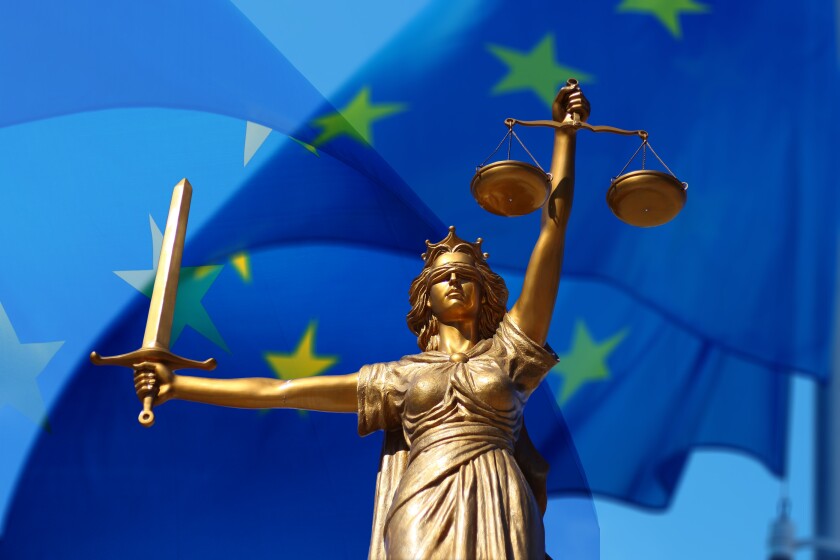Portugal transposed into domestic legislation the VAT exemption provided by Article 135(1) of Council Directive 2006/112/EC of 28 November 2006 on the common system of value added tax (the VAT Directive) for the transfer and letting of immovable property. The country also made use of the power laid down in Article 137 of the VAT Directive by granting taxable persons a right of option for taxation of those transactions, upon the fulfilment of several requirements and formalities.
One of the formalities that arises from the Portuguese exemption waiver regime is that taxable persons are required to be in possession of a certificate issued by the Portuguese Tax and Customs Authority (TCA) before carrying out an operation. The certificate states that the taxable persons involved in the transaction have informed the TCA of their intention to waive the VAT exemption and have declared that the conditions for waiving the VAT exemption are fulfilled.
Under the Portuguese regime, the waiver of the exemption takes effect at the moment of the execution of the contract for the sale or lease of the property and the transferors or lessors are only allowed to deduct input VAT relating to the property in that period, or in the period following that in which the exemption is waived. One major point of discussion between taxpayers and the TCA is the deduction of input VAT prior to the acquisition of the certificate and the execution of a contract for the sale or lease of the property.
Portuguese courts have pointed out that the certificate is a constitutive act of rights in tax matters and that the failure to fulfil a formality prevents the taxable person from waiving the VAT exemption and benefiting from the right to deduct input VAT.
Portugal’s regime in the context of EU law
The European Court of Justice (ECJ) decision in the Kirchberg case (C-269/03) is mentioned in Portuguese jurisprudence, as in that case the ECJ took the view that the VAT Directive does not preclude a member state that has exercised the power to allow taxpayers a right of option for taxation on leasing or letting transactions of immovable property from adopting legislation that makes full deduction of the input VAT paid, conditional upon non-retroactive, prior approval of the tax authorities.
Notwithstanding, it may be questioned whether a provision such as the one that results from the Portuguese regime that conditions the moment at which the right of deduction may occur is in accordance with EU law and its fundamental principles, considering the settled case law of the ECJ, as follows:
A person that incurs investment expenditure with the intention, confirmed by objective evidence, of engaging in economic activity must be regarded as a taxable person. Acting in that capacity, it has the right immediately to deduct the VAT payable or paid on the investment expenditure incurred for the purposes of the transactions that it intends to carry out and that give rise to the right to deduct (case C-126/14).
The principle of fiscal neutrality requires a deduction of input tax to be allowed if the substantive requirements are satisfied, even if the taxable person has failed to comply with some of the formal requirements (case C‑590/13).
When the member states use their ability to restrict the scope of the right of option and to determine the arrangements for its exercise, they are to observe the general objectives and principles of the VAT Directive; in particular, the principle of fiscal neutrality (case C-246/04).
Even if Article 137(2) of the VAT Directive leaves member states a wide discretionary power to determine the rules governing the exercise of the right of option and even to withdraw it, the member states could not use that power to infringe articles 167 and 168 of that directive by revoking a right of deduction that has already been acquired (case C-672/16).
The principle of fiscal neutrality precludes treating similar supplies of services, which are thus in competition with each other, differently for VAT purposes (case C-246/04).
Taking as an example a situation in which a taxable person incurs in VAT related to preparatory expenses of its activity, knowing in advance that the conditions for the right to opt for waiving the VAT exemption will be met and where a letter of intent is in place (and, therefore, it can be argued the taxable person has an objectively proven intention to carry out an activity subject and not exempt from VAT), it seems to be contrary to EU law and the principle of neutrality to condition the right to deduct input VAT to the moment at which the exemption is formally waived.
This condition creates a disparity in treatment between taxable persons that carry out operations subject to, and not exempt from, VAT other than the lease and transfer of immovable property and those that pursue taxable activities because they waive the exemption on the transfer or leasing of immovable properties. The former can immediately deduct input VAT after the preparatory phase of their activity, while the latter can only deduct input VAT after completion of the sale or lease, suffering a temporary negative financial effect.
The Portuguese waiver regime: time for a rethink?
Considering that the Portuguese exemption waiver regime dates to 2007, is complex, formalistic, and leads to litigation between taxable persons and the TCA, including at the level of the ECJ (case C-672/16), it is time for Portugal to review its tax policy regarding this regime and ensure compliance with EU law and fundamental principles.













